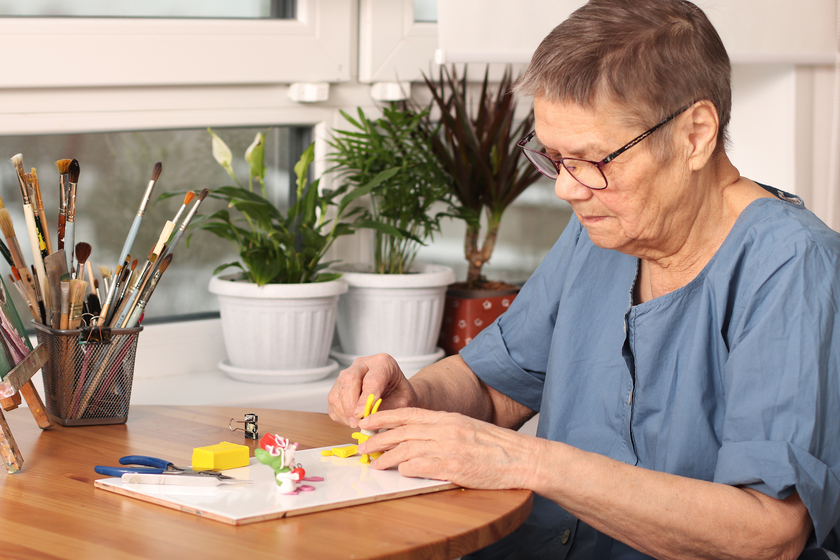Small Memory Carehomes Charlotte: A Caring Alternative
Wiki Article
All About Memory Treatment Services: Why Small Memory Care Houses Are a Fantastic Choice
Memory treatment services play a vital duty in supporting people with Alzheimer's and dementia. Tiny memory care homes stand out for their personalized method and intimate setting. With lower staff-to-resident ratios, these homes promote more powerful connections and tailored care. Homeowners take advantage of improved social communications and a secure atmosphere. As families explore options, recognizing the distinct advantages of small memory treatment homes ends up being vital. What elements should be taken into consideration when picking the appropriate home?Understanding Memory Care Solutions
While many may recognize with general elderly care choices, understanding memory treatment solutions is crucial for households facing the challenges of cognitive decline. Memory care particularly accommodates people with problems such as Alzheimer's disease and various other forms of dementia. These solutions supply an organized setting that concentrates on improving the high quality of life for citizens through specialized treatment and support.Memory care centers are developed to ensure safety and security and safety, frequently including protected settings to avoid straying. Trained team member are available around the clock to assist with everyday activities, drug monitoring, and personal care. Furthermore, memory care programs usually include cognitive excitement tasks, tailored to involve homeowners and advertise psychological wellness. Households can gain from understanding these services, as they make it possible for educated choices concerning their loved ones' treatment, guaranteeing that their particular needs and preferences are dealt with in a encouraging and thoughtful fashion.The Benefits of Small Memory Care Homes
Small memory treatment homes offer distinct benefits that can greatly improve the top quality of life for residents with cognitive problems. One considerable benefit is the intimate atmosphere, which allows for personalized communications amongst staff and locals. This smaller sized setup promotes significant partnerships, reducing sensations of isolation and anxiousness often experienced by individuals with memory issues.Additionally, the reduced staff-to-resident ratio in tiny memory care homes enables caregivers to provide more attentive guidance and support. This method not only boosts security yet also promotes a complacency for the residents.Moreover, tiny memory care homes can adapt swiftly to the unique needs and choices of each local, enabling a much more homelike atmosphere. Such an atmosphere can encourage social involvement and engagement in activities, inevitably enriching the everyday experiences of those coping with cognitive impairments.Personalized Care Plans for Residents
Personalized treatment plans are essential in memory treatment homes, as they accommodate the special demands and preferences of each resident. These strategies start with thorough analyses conducted by skilled experts, that evaluate cognitive abilities, case history, and personal passions. This tailored method warranties that care is not only reliable but likewise considerate of each individual's dignity and autonomy.Moreover, customized care strategies are flexible, allowing modifications as citizens' demands advance over time. This flexibility fosters a complacency and familiarity, which is necessary for individuals living with memory challenges. Caregivers are trained to execute these strategies consistently, giving support that lines up with the locals' routines and preferences.Ultimately, personalized treatment plans boost the quality of life for residents by promoting involvement, freedom, and health, making them a basic element of memory care services in small memory treatment homes.Developing a Home-Like Atmosphere
Producing a home-like environment is essential for fostering convenience and knowledge in memory care settings, as it substantially influences locals' emotional health. Little memory treatment homes typically prioritize tailored touches, such as cozy color schemes, household images, and acquainted furniture plans, which help homeowners feel a lot more at ease. Integrating components reminiscent of a traditional home, like comfy space and communal areas, urges a feeling of belonging.Moreover, making use of natural light and outside spaces can boost the atmosphere, advertising leisure and tranquility. Team member play a considerable role in preserving this environment by engaging with locals in a compassionate way, treating them like family members. Routine tasks, such as cooking or horticulture, can likewise add to a home-like feeling, supplying chances for citizens to join meaningful experiences. On the whole, producing a supporting environment supports cognitive function and emotional security, making it an important facet of memory treatment solutions.
Boosted Social Communication and Community
Improved social interaction and community are necessary parts of memory care services. By promoting customized social interaction and developing a family-like environment, these services promote meaningful connections amongst homeowners. Team events and activities additionally urge participation, assisting individuals feel a lot more included and supported.Individualized Social Interaction
While social interaction is crucial for overall health, lots of individuals with memory disabilities frequently struggle to engage meaningfully with others. Customized social engagement in memory treatment homes addresses this difficulty by developing customized tasks that deal with citizens' distinct passions and capabilities. By concentrating on individual preferences, caregivers can cultivate links that reverberate deeply with everyone. Tasks such as art therapy, music sessions, and led conversations advertise cognitive stimulation and psychological expression. Furthermore, little group settings motivate sociability and allow for even more intimate interactions, boosting feelings of belonging. This strategy not just battles feelings of isolation yet additionally encourages citizens to maintain a feeling of identity, ultimately adding to boosted mental health and top quality of life.Family-like Environment
In a memory treatment setup, cultivating a family-like atmosphere greatly improves social communication and builds a feeling of community among citizens. Smaller memory treatment homes commonly prioritize intimate environments, allowing locals to form closer connections with each other and team member. This nurturing environment advertises trust, which is vital for people with memory problems. Locals are extra likely to talk and share experiences, creating a helpful network that relieves sensations of isolation. The knowledge of common rooms and routines adds to a feeling of belonging, even more motivating social communication (personalized memory care). In such setups, psychological bonds flourish, resulting in improved general well-being and a better of life for citizens as they navigate their daily experiences togetherGroup Activities and Events

Security and Safety Features in Small Residences
Several tiny homes developed for memory treatment include important safety and protection attributes to guarantee the well-being of homeowners. These homes commonly utilize safe and secure access and departure points to protect boutique memory care against wandering, an usual issue among people with memory disabilities. Furthermore, security systems and alarm system mechanisms boost surveillance, ensuring that personnel can promptly reply to any uncommon activities.Interior designs are tailored for safety, with decreased risks such as sharp corners and clutter-free pathways. Handrails and non-slip floor covering are usually installed to minimize the threat of drops. Team member are educated in emergency situation methods, guaranteeing they are prepared for different situations.Moreover, customized care strategies might consist of assessment of private safety and security needs, supplying customized solutions for every citizen. Overall, these safety and security and security attributes develop a nurturing setting where residents can prosper while maintaining their dignity and freedom.How to Choose the Right Memory Care Home
How can households guarantee they choose one of the most ideal memory care home for their liked ones? The choice requires careful consideration of several aspects. Families need to assess the center's team certifications and training, guaranteeing that caregivers are experienced in managing memory-related problems. Next off, it's crucial to assess the home's setting, concentrating on safety and security features and whether it promotes a sense of area and belonging. Checking out the center can offer insight right into day-to-day activities and the social ambience, which are crucial for psychological stimulation and emotional well-being. In addition, families ought to ask about the care plans supplied, ensuring they are customized to private needs. Lastly, thinking about the home's area and access for family gos to can add to a smoother shift. By dealing with these elements, families can make an educated decision that prioritizes their loved one's comfort and high quality of life in a memory treatment setup.Frequently Asked Concerns
What Qualifications Should Team Members in Memory Treatment Residences Have?
Employee in memory treatment homes should possess appropriate certifications, experience in dementia treatment, solid interaction skills, and compassion. Ongoing training in behavioral management and healing treatments enhances their capability to sustain residents properly.How Do Memory Treatment Solutions Differ From Traditional Assisted Living?
Memory treatment services concentrate specifically on people with memory disabilities, offering specific assistance and organized environments. In contrast, conventional assisted living supplies basic assistance with everyday tasks, doing not have the tailored method essential for those with cognitive obstacles.What Kinds of Tasks Are Supplied in Memory Treatment Homes?
Memory care homes usually offer a selection of activities designed to involve locals. Typical choices consist of art therapy, music sessions, cognitive video games, workouts, gardening, and gatherings, all focused on improving well-being and cognitive feature.Can Homeowners Bring Their Own Items to Memory Treatment Houses?
Locals can usually bring their own possessions to memory treatment homes, permitting them to individualize their home - personalized memory care. This method assists create a familiar setting, promoting convenience and a feeling of identity for the individuals
Just How Are Relative Associated With the Care Process?
Household participants play a vital role in the treatment process, often getting involved in decision-making, attending treatment meetings, and giving emotional assistance. Their involvement fosters a collective environment, improving the local's overall wellness and quality of life. While several may be acquainted with general elderly treatment options, comprehending memory care solutions is vital for family members encountering the difficulties of cognitive decrease. These services give an organized setting that concentrates on improving the top quality of life for homeowners with specialized care and support.Memory care facilities are developed to assure safety and protection, commonly including safeguarded settings to prevent roaming. Individualized treatment strategies are vital in memory treatment homes, as they provide to the unique requirements and choices of each resident. Personnel members in memory treatment homes must possess pertinent qualifications, experience in dementia treatment, strong interaction skills, and concern. Memory treatment solutions focus particularly on individuals with memory problems, giving specific assistance and structured environments.Report this wiki page